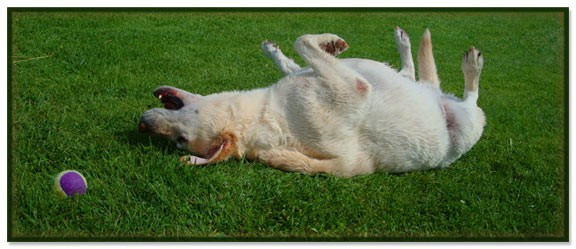- Children, infants, the elderly, pregnant women, and puppies all have weakened immune systems and are most at risk for infection from these biological hazards
- 1 ounce of dog waste can contain 23 million microorganisms of bacteria – almost twice the amount from human waste
- Every day about 125 tons of pet waste is deposited on the ground. 80% of pet owners do not remove poop from their own yards
- Parvo virus is a highly contagious virus that affects mainly dogs. It is transmitted by direct and indirect contact with pet waste. It can be extremely severe in puppies. It can cause severe vomiting, dysentery, respiratory or cardiovascular failure. Dogs infected with Parvo virus need to see a veterinarian ASAP! Please see Wikipedia – Canine Parvovirus for more information

Zoonotic Diseases are those passed from animal to human. Here are just a few: Whipworms, Hookworms, Tapeworms, Roundworm, E. coli, Salmonella, Q Fever, Rabies, Ringworm, Rocky Mountain Spotted Fever, Listeria, Giardia, Lyme Disease, Campylobacter (causes diarrhea in humans), Clostridium Perfringens, Cryptosporidium, Adenovirus, Brucellosis, Leishmaniasis, Leptospirosis, Toxocariasis (caused by roundworms, infection often does not have noticeable symptoms, but may cause a cough, rash, fever, or even blindness).
For more information on these illnesses refer to The Centers for Disease Control – Diseases from Dogs.

- Some of these biological hazards are highly resistant to extreme temperatures, drying, and chlorination; they can even survive for weeks or months in yards and waterways. Parasitic eggs can survive for years in your yard before hatching
- Please see this flyer from the CDC – What Every Pet Owner Should Know about Roundworms & Hookworms
- Remember just because you pets poop outside, doesn’t mean the infectious parasites won’t find their way into your home. Rodents and bugs are attracted to feces and can transmit these diseases and even more
- Pet Waste is Not Fertilizer! If used to fertilize fruits and vegetable it could contaminate them with harmful toxins and cause serious sickness or even death
- Be cautious: compost piles may not get hot enough to kill disease-causing organisms
- It’s recommended that dog feces be removed as soon as possible, especially before it rains heavy. If dog feces are not scooped these organisms will seep into the soil and eventually contaminate our water supply also!
